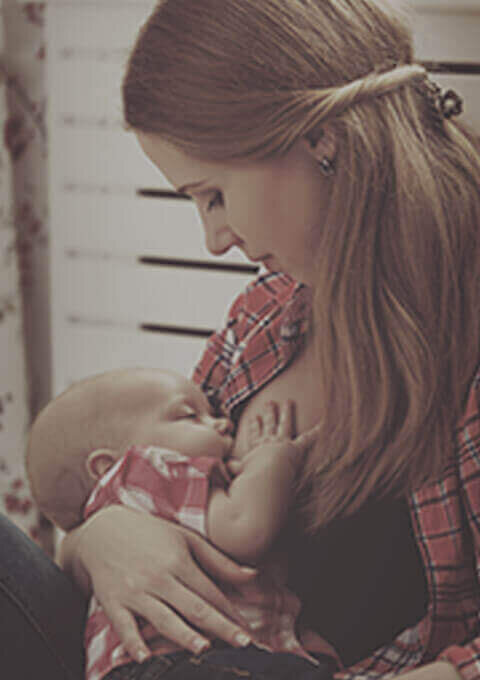To achieve successful beginnings of breastfeeding, you will need self-confidence, patience, support from the loved ones and getting acquainted with a handful of tips that will allay fears and doubts. We can also advise on how to prepare your breasts for feeding.
It is a good idea to take care of your breasts during pregnancy to minimize the risk of soreness that can be painful and discourage you from breastfeeding.
Successful breastfeeding highly depends on your attitude. Fear of failure, uncertainty and lack of self-confidence can make the beginning of effective breastfeeding difficult and even delay lactation. You can put this fear aside by choosing the breastfeeding clinic that could support you in case of any problems.
Tell your loved ones that you are going to breastfeed and ask for their support. Explain to them how important it is to you. Discuss with your partner the type of support you would like him to provide after birth and during lactation.
Find out if the staff in the hospital where you plan to give birth is supportive towards breastfeeding. Learn your rights before labour and insist on respecting them during your stay in the hospital.
At admission to the hospital tell your midwife that you really want to breastfeed. You can ask her to arrange a meeting with a lactation consultant right after delivery, as this is usually the person supporting the breastfeeding mothers.
Your breasts change during pregnancy, the nipple and the areola enlarge and darken. The breasts are larger, you can see the veins under the skin and stretch marks can appear. Here are a few tips that will help you harden your breasts for breastfeeding:
Do not use any creams nourishing and moisturizing the nipple and areola during pregnancy. There is no need to do that. Montgomery's sebaceous glands located within the areola produce a substance nourishing and moisturizing the nipple, protecting it from irritation during pregnancy and breastfeeding.
If you experience breast skin dryness or notice stretch marks, use a cream, but avoid the areola and nipple area.
Do not wash your breasts with nipple drying soap and do not harden the nipple and areola by scrubbing with a sponge or rubbing with alcohol. Just sprinkle the breast with water while bathing. Rubbing the nipples does not prevents irritation and cracking (what is mainly a result of improper latch on), but it can lead to nipple injury.
Wear properly suited bra. It should not pinch and flatten the breasts. If you are in the last months of pregnancy, and there are milk droplets coming from your breasts, start using breast pads.
Check if your nipples are well developed, being not flat or inverted. Squeeze the areola and see if the nipple does not flatten or retract. If yes, nipple correction is necessary, supervised by a lactation consultant.
A popular opinion says that breastfeeding is a great sacrifice on a woman's part for a baby's good. The truth is this way of feeding is advantageous not only to the baby but also to the breastfeeding mum.
You are expecting a baby and want to breastfeed, or maybe you have already started this exceptional adventure, but your head is full of questions and doubts, as in many cases it is not an easy and problem-free task. We will ...
Are you pregnant and intend to breastfeed? Or maybe you have already given birth and are looking for information here because of problems with breastfeeding your baby? Sometimes, something that seems natural is not easy, ...
During feeding the baby sometimes swallows air that accumulates in the digestive tract and can cause colic, bloating and posseting. Therefore, after each feeding you should encourage your child to burp. We show 3 burping ...
During infection, breast-feeding is advisable, even during fever and runny nose. It protects the baby against infection. However, there are diseases that prevent breast feeding. Check when you can, and when you should not ...
Breastfeeding mums may face the situations where it is necessary to express milk: a small amount to relieve full breasts or more to feed the child. You can express milk manually or with a breast pump.
Besides your breasts filled with milk you may find useful, or even indispensable, additional accessories. Check what you will need at the beginning and during difficult breastfeeding moments.
One of the most common fears about breastfeeding is the shortage of breast milk. Here we present our ways to increase lactation.
